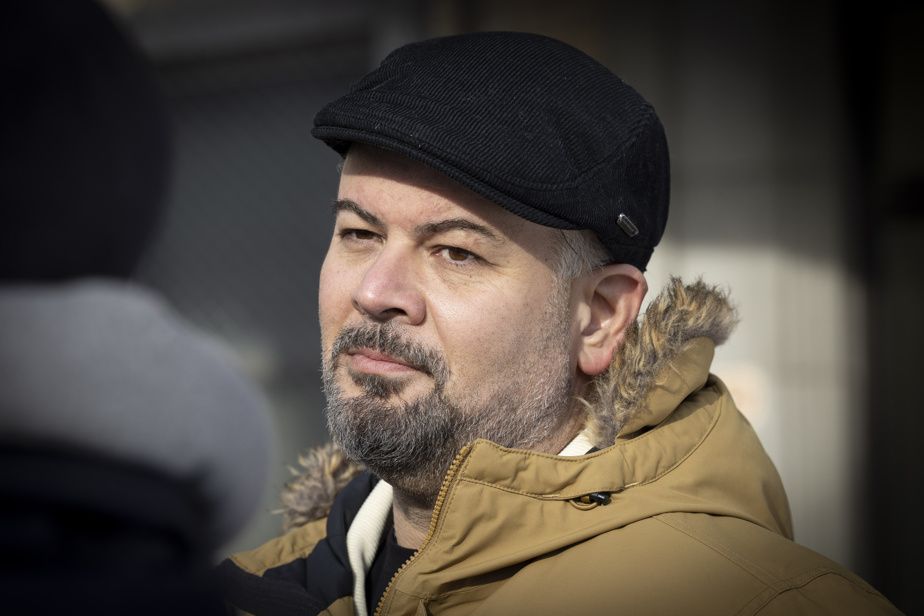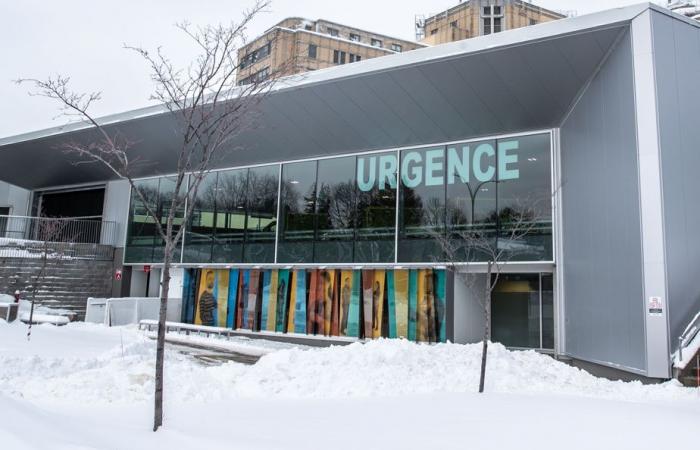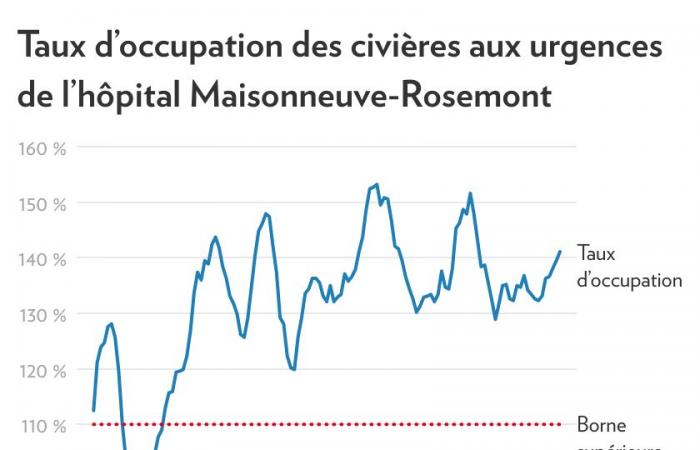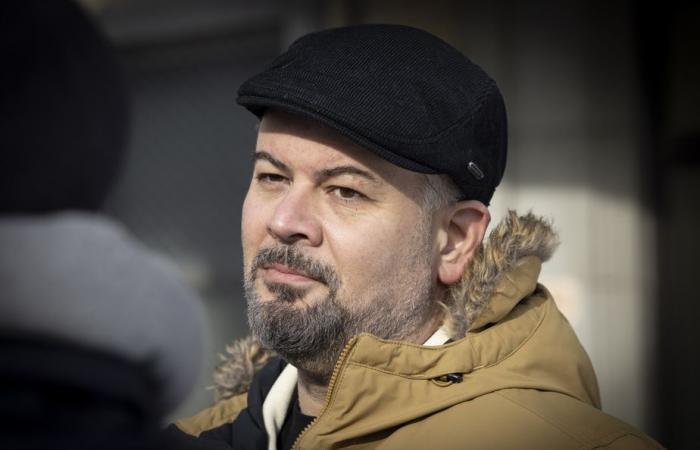The holiday season has not yet arrived, and yet ambulances are already diverted from the Maisonneuve-Rosemont hospital. Around twenty emergency nurses have been required to work compulsory overtime since Thursday evening.
Published at 5:00 a.m.
What you need to know
- Around twenty nurses at Maisonneuve-Rosemont hospital in Montreal were forced to work overtime;
- The establishment claims that the situation is due to increased traffic while the union sees it as the effect of a hiring freeze;
- This occurs in the context where Quebec had committed to putting an end to compulsory overtime.
The situation was so tense during the night from Thursday to Friday that executives were “invited” to work on the floor, reports the president of the Union of Healthcare Professionals of the East Island of Montreal, Denis Cloutier.
The Integrated University Health and Social Services Center (CIUSSS) of Eastern Montreal explains this wave of overtime imposed on staff by “the significant increase in traffic in our hospitals », a trend that we say we have observed “since last summer and which is continuing”.
“Currently several hospital beds are occupied by patients awaiting relocation who no longer require short-term care,” we indicate by email. We are struggling to free up hospital beds for patients who need to be admitted to the emergency room. »
Hence the need to “ask the HMR emergency day nurses to stay for the evening in order to provide safe care”. Result: ambulances were diverted to other hospital establishments for an hour.
“Not out of the ordinary”
However, the situation is far from being “surprising”, believes union representative Denis Cloutier, who emphasizes that the flu season is starting in Quebec. “It’s traffic that’s not out of the ordinary for the East Island,” he said.
Rather, he sees the impact of the lack of personnel created by a recent hiring freeze imposed on the Quebec public network. According to him, no position has been posted in the eastern Montreal health network since last April.

PHOTO PATRICK SANFAÇON, LA PRESSE ARCHIVES
The president of the Union of Healthcare Professionals of the East Island of Montreal, Denis Cloutier
This is the result of an accounting approach that is imposed unilaterally on us in Quebec, but there are still places where the shortage [de personnel] hits hard and where we need to recruit people, hire, post positions.
Denis Cloutier, president of the Union of Healthcare Professionals of the Eastern Island of Montreal
In operation since 1is December, Santé Québec was entrusted with the mission of restoring budgetary balance in the CISSS and CIUSSS. The deficit for the year 2024-2025 will reach 1.5 billion “if nothing is done”, maintains the state-owned company.
The end of OST?
Compulsory overtime, better known as “mandatory overtime” (TSO), has long been denounced by unions. And particularly at the Maisonneuve-Rosemont hospital, where around a hundred nurses threatened to resign in the face of the explosion in the use of forced work shifts last year.
Minister Christian Dubé’s Health Plan, presented in March 2022, explicitly provided for the end of the use of this measure.
Again at the end of November, during a press briefing to mark the entry into office of Santé Québec, the minister praised the progress in this area. “There are things we did that were seen as unthinkable a few years ago. I’m thinking of TSO. […] We have reduced the TSO significantly, you know that, we no longer talk about it,” said Christian Dubé at the time.
Indeed, as of November 16, the rate of overtime hours worked compulsorily by emergency nurses had dropped to 0.25%, far from the peaks reached during the emergency crisis in the fall of 2022 or in the summer of the same year, marked by a seventh wave of COVID-19.
However, the situation experienced in recent days at Maisonneuve-Rosemont hospital demonstrates that problematic situations persist, underlines Denis Cloutier. “The problem of OST is recurring, it continues to exist,” he says.
For its part, the CIUSSS affirms that “many people go to the emergency room instead of going to another health professional, which contributes to the increase in pressure on our emergency teams.”
With Marie-Eve Cousineau, The Press








